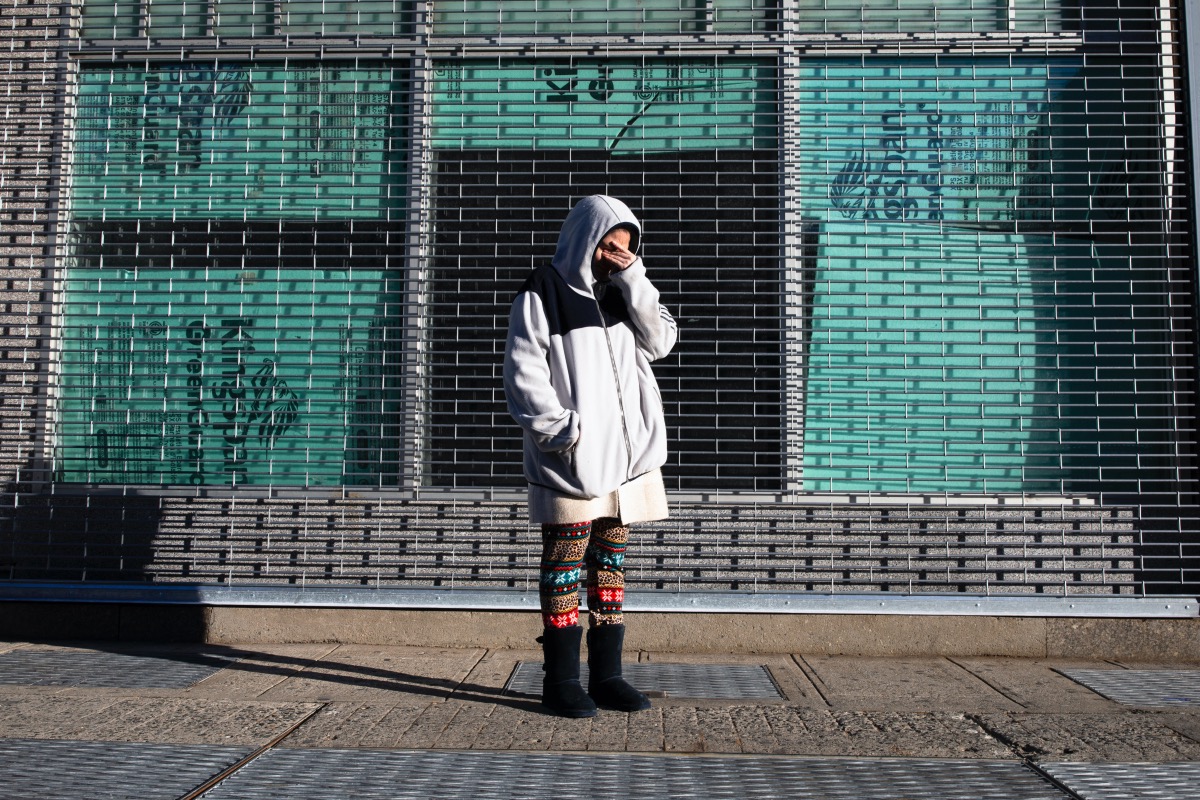

On a cold winter day, Madeline waits for the bus to pick up Dasha from school in Irvington, New Jersey, on January 9, 2020. (Benjamin Chambers/Latino Rebels)
IRVINGTON, New Jersey — In September 2019, Madeline was leaving her home in Corona, Queens to take her daughter Dasha to school when she saw her partner Jorge’s toolbox lying abandoned on the lawn outside. She immediately understood that U.S. Immigration and Customs Enforcement (ICE) had taken him.
As undocumented immigrants from Ecuador, Madeline, 21, and Jorge, 27, had long lived with the risk that they could one day be arrested. On that day in September, fearing she and her daughters could be next, Madeline, five-year-old Dasha, two-month-old Dashly, and the extended family members they lived with —Jorge’s mother and his cousins— fled to New Jersey.
At the time that ICE’s Office of Enforcement and Removal Operations took Jorge from right outside their home, he was the primary income provider for the household of nine.
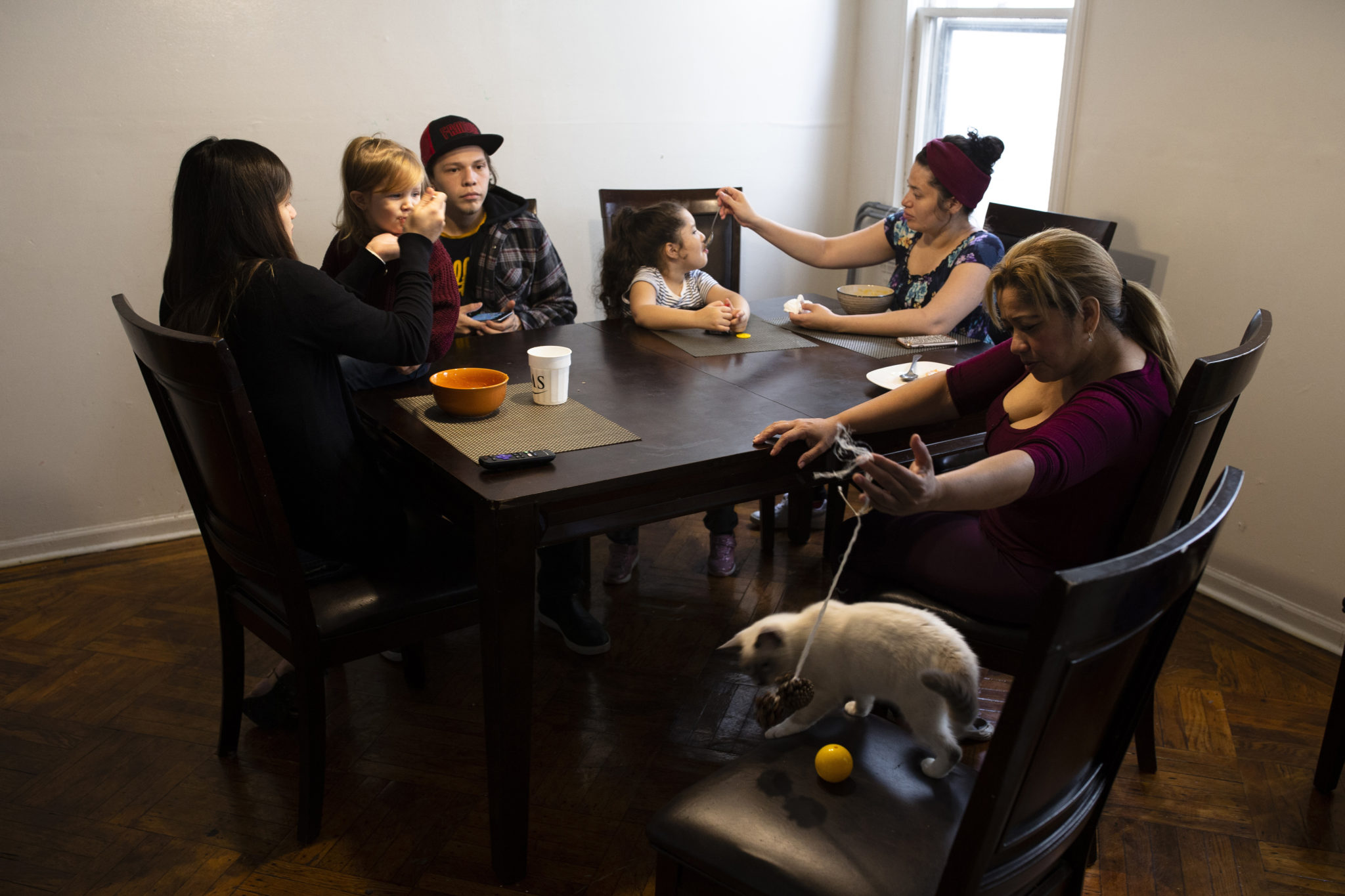

From left, Angela, Khleo, Byron, Dasha, Madeline, Jessica and the family cat Frida have a meal at their new, sparsely furnished home in Irvington, New Jersey, on October 8, 2019. (Benjamin Chambers/Latino Rebels)
“We want the same thing that everyone wants,” says Madeline, “To work, to build a family, to someday do something in our own countries, to be at peace here.”
The family was left reeling in the aftermath of Jorge’s arrest, which forced them to abandon their home and relocate four times in pursuit of sanctuary.
The family first fled to a cousin’s home in Irvington, New Jersey. Jorge’s and Madeline’s daughter Dasha is also undocumented, as is Jorge’s mother, Jessica, 44. Baby Dashly is a U.S. citizen by birth.
Madeline, Jorge, Dasha, and Jessica are from the town of Babahoyo, which sits where the Catarama River joins the San Pablo River to form the Babahoyo, whose waters eventually pour into the Pacific Ocean at Guayaquil 45 miles away. Madeline and Jorge met on the internet in 2010. They fell in love and had their daughter Dasha in 2012. Jorge moved to the United States in 2015 fleeing growing violence and unemployment in Ecuador. Madeline and Dasha joined him in 2017.
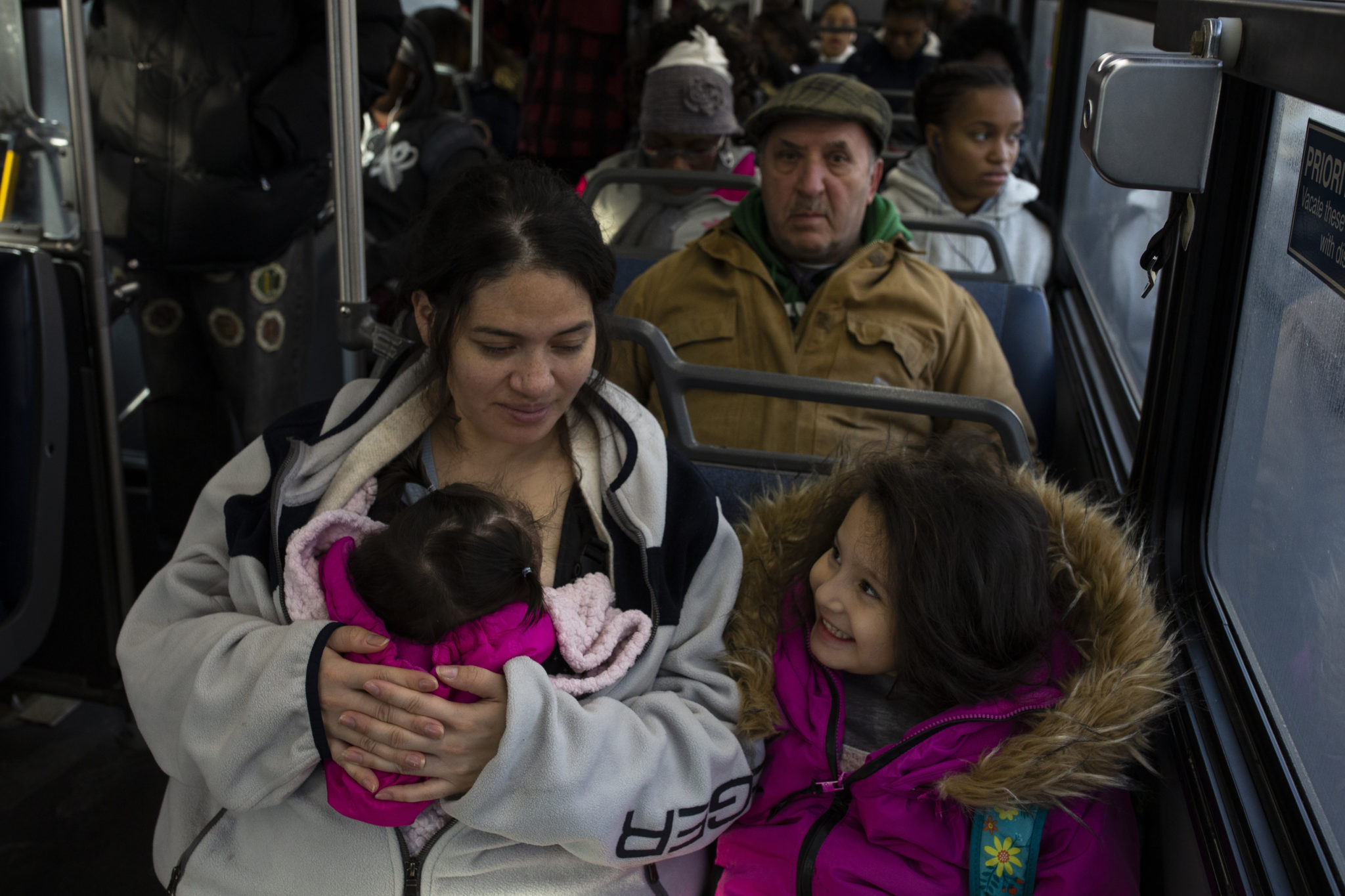

Mother Madeline and baby Dashly accompany five-year-old Dasha on the hour-long bus ride to her new school in Irvington, New Jersey, on January 9, 2020. Prior to Jorge’s arrest, Dasha’s old school was just a five-minute walk away. (Benjamin Chambers/Latino Rebels)
The young family settled in Queens with relatives that included Jessica; cousin, Byron, 24, his wife Angela, 20, their daughter Khleo, 2, and the family cat Frida. They were quite happy in their new home. Angela cared for the children while Jorge worked in construction, Byron worked in a café, Madeline worked in textiles and baked goods, and Jessica worked in demolition and construction. Dasha loved her new school.
Their escape to New Jersey after Jorge’s arrest set off a chain of events that saw Madeline and her family move from home to home, from their home in Corona, Queens to two different houses in Irvington, New Jersey, and finally to their temporary home in the Bronx, where they continued the search for yet another —their fifth— place to live. During this time, Dasha attended at least three different schools in over a year, and the once strong family of nine had dwindled down to four.
Madeline believes would the family eventually have separated anyway to live their own lives, but she finds the strain of living away from Jorge particularly hard.
“Jorge’s absence is obviously more impactful because the family is divided,” she says. “He is not with us and in any case the father figure is very important for the growth of the girls. We still stick together even if we are distant. And like all couples, there are ups and downs. But we continue, maintaining the family, even if separately.”
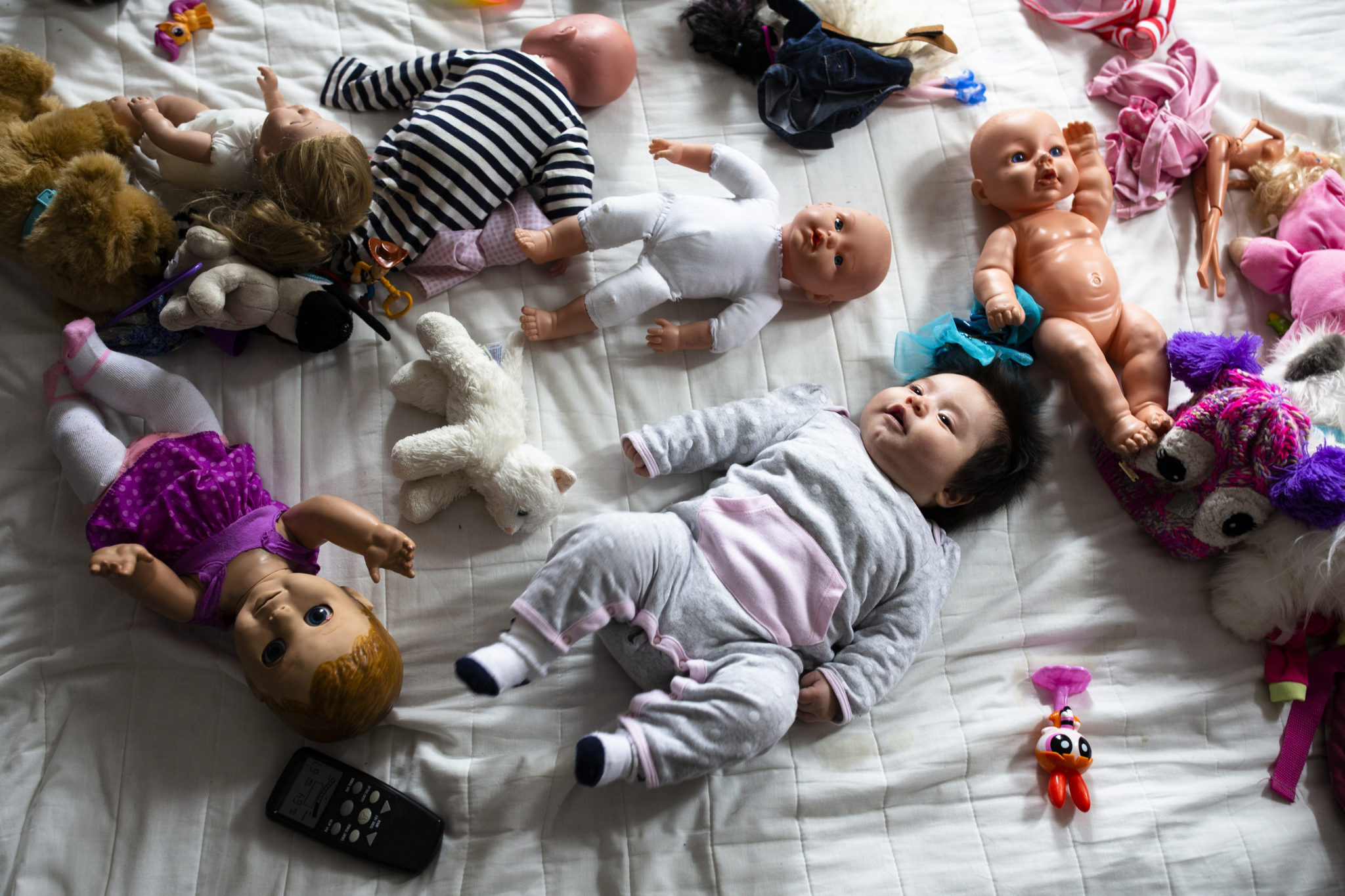

Dashy, two months old, lies surrounded by her dolls at the family’s former home in Queens, New York, on October 8, 2019. (Benjamin Chambers/Latino Rebels)
Although the family initially moved to New Jersey to avoid ICE, they quickly overstayed their welcome at each of their new homes due in large part to the economic hardship created by Jorge’s absence, by Madeline’s and Jessica’s inability to find well-paid work while caring for the children, by the logistical challenges of finding work nearby, and by conflicts these issues spawned between them and their host families.
Through the support of a lawyer from Brooklyn Defender Services, which helps immigrants facing deportation or family separation, Jorge was eventually released from the detention center where he had been held for nearly four months. But Jorge’s and Madeline’s reunion was short-lived. Jorge lost his construction job in Queens because of his arrest, was not paid his final wages, and was only able to find construction work in Utah, leaving Madeline and Jessica once again to care for the children on their own.
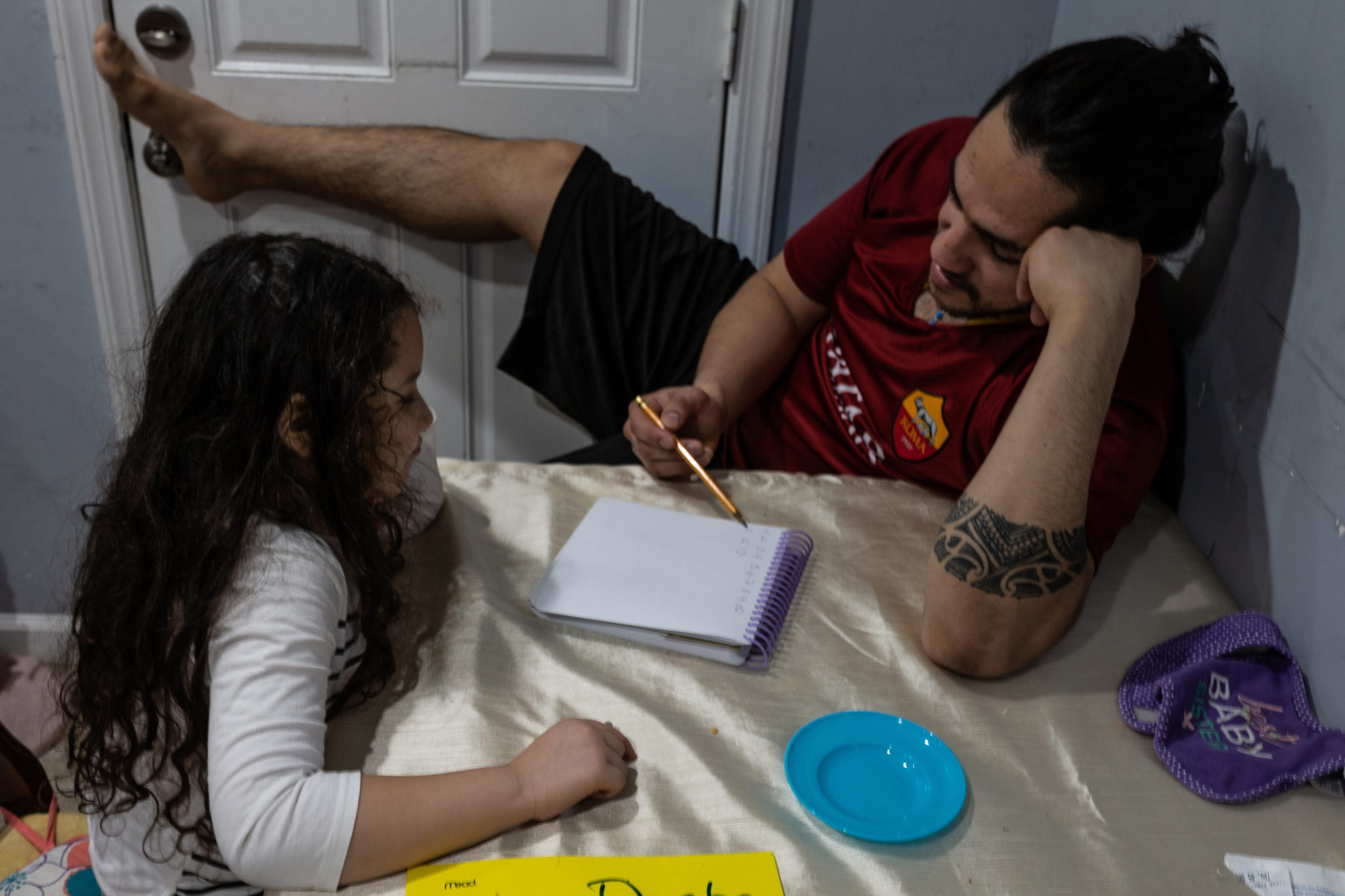

Nearly four months after his arrest, Jorge was released with the help of a pro-bono attorney and once again able to help his daughter Dasha with her homework, in Irvington, New Jersey, on January 12, 2020. “I have a family to love and protect,” said Jorge. (Benjamin Chambers/Latino Rebels)
The COVID-19 pandemic, poverty, and the differences in legal status among the members of the once strong family of nine caused a painful division. It was no longer sustainable for such a large group to survive these crises together. Byron, Angela, and Khleo stayed in New Jersey, while Madeline, Jessica and the girls moved to the Bronx. Frida the cat was not welcome in the Bronx, so the family had to leave her in the care of a friend in New Jersey.
“I miss my dad, my cousin Khleo, and my kitten,” says Dasha.
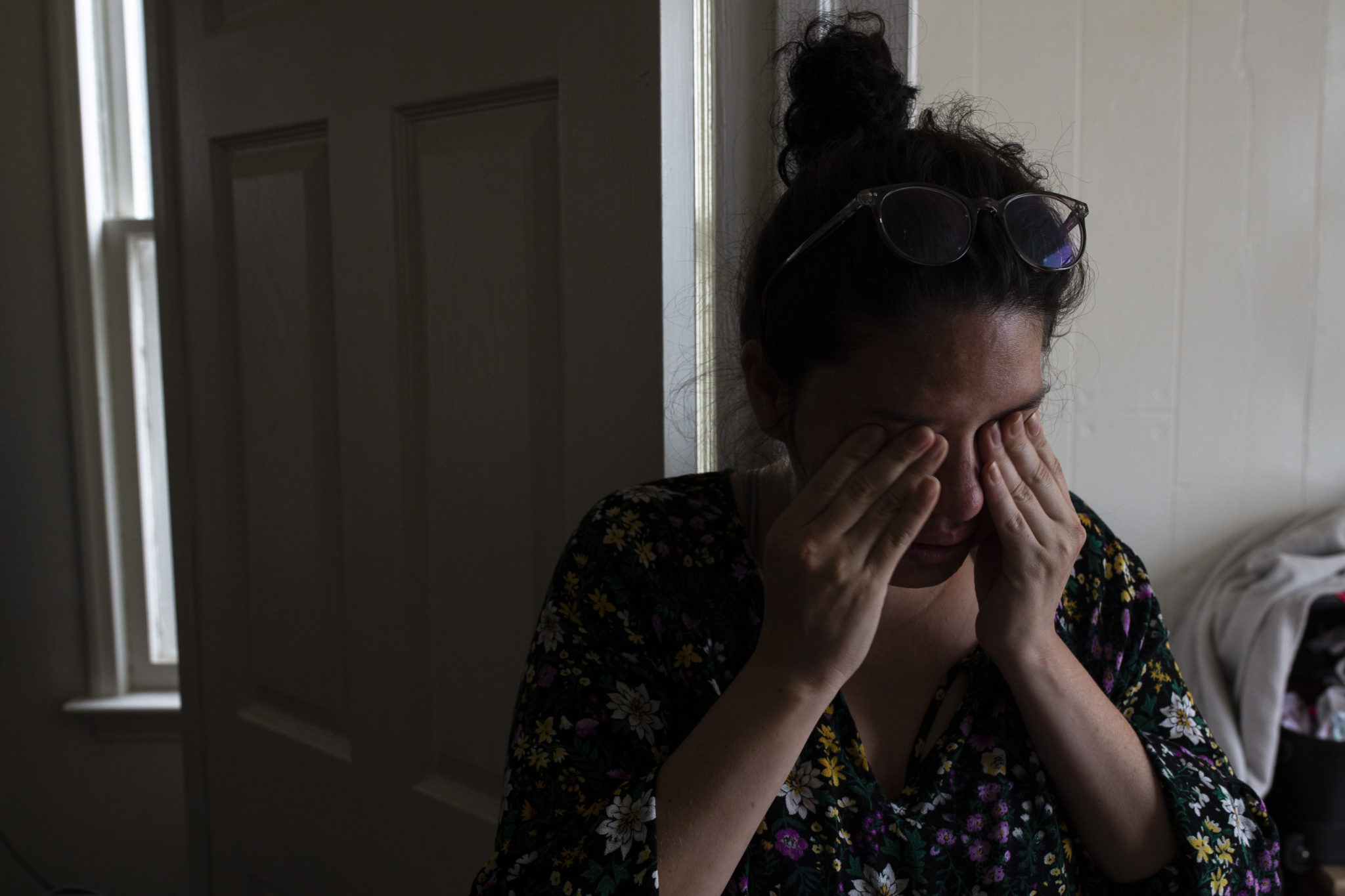

Madeline cries after she speaks to her partner, Jorge, who is being held a detention center in Irvington, New Jersey, on October 8, 2019. (Benjamin Chambers/Latino Rebels)
For Madeline and Jessica, family is everything, especially raising of the girls. It has helped them not only to cope with the challenges of Jorge’s absence but also with the fear that ICE will come knocking on their door again.
“In many ways, we have to change when one becomes an immigrant,” says Madeline, who graduated from the University of Babahoyo where she studied nutrition. She always planned to validate her credentials once she arrived in the United States but still can’t afford to do so.
“Migrating gives to you but it also takes away from you. I have not lost hope of validating my credentials and continuing to practice in my field, one day, when things are better.”
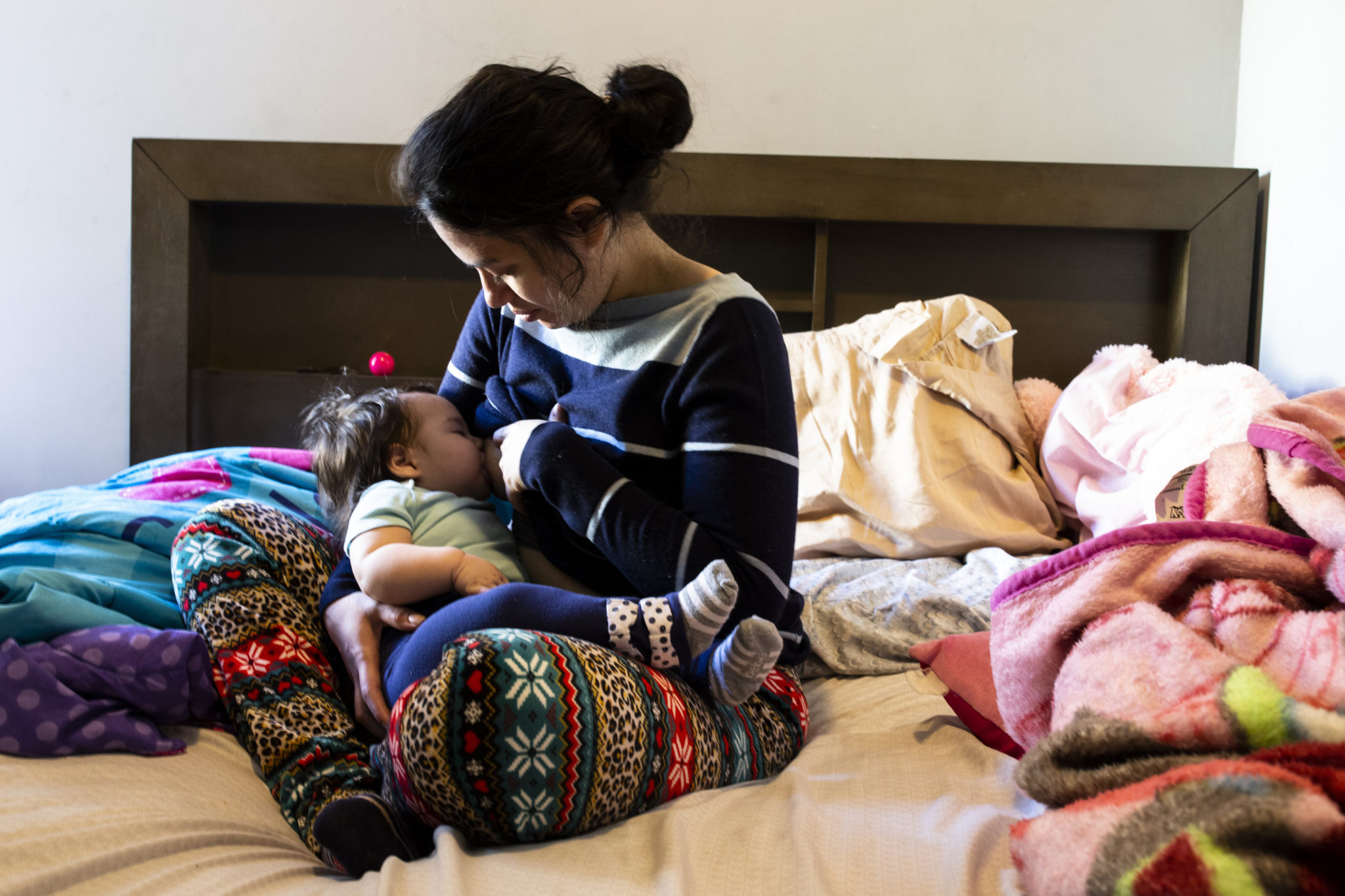

Madeline breastfeeds Dashly in their bedroom in Irvington, New Jersey, on January 9, 2020. (Benjamin Chambers/Latino Rebels)
In light of the COVID-19 pandemic restrictions, Dasha only attends schools remotely and learns English with her teacher and classmates from her new school in Manhattan. Dashly is already beginning to say her first words in Spanish.
“The girls are our reason to keep fighting,” says Madeline while feeding Dashly.
***
Benjamin Chambers is an award-winning photojournalist from Ecuador now living in New York City. He completed a 2021 Pulliam Fellowship at The Arizona Republic, part of Gannett/USA Today Network, and earned a master’s degree from the Craig Newmark Graduate School of Journalism at CUNY in December 2020 and a bachelor’s degree in photojournalism from St. John’s University in 2019.


